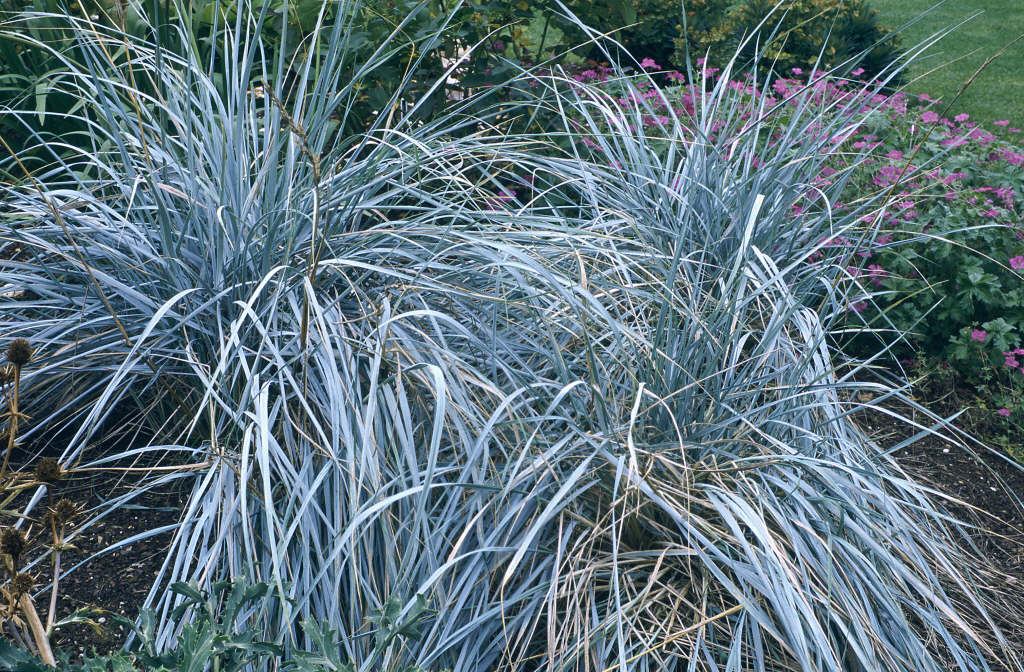Elymus magellanicus
Magellan rye grass
A tufted deciduous grass to 60cm in height, forming a dense clump of vivid blue linear leaves to 5cm in length, with small, lax flower spikes in summer
Other common names
blue wheatgrassMagellan wheatgrass

Buy this plant
Size
Ultimate height
0.5–1 metresTime to ultimate height
2–5 yearsUltimate spread
0.1–0.5 metresGrowing conditions
Moisture
Moist but well–drained, Well–drainedpH
Acid, NeutralColour & scent
| Stem | Flower | Foliage | Fruit | |
| Spring | Blue Grey Silver | |||
|---|---|---|---|---|
| Summer | Green | Blue Grey Silver | ||
| Autumn | Blue Grey Silver | |||
| Winter |
Position
- Full sun
Aspect
South–facing or North–facing or East–facing or West–facing
Exposure
Exposed or Sheltered Hardiness
H6Botanical details
- Family
- Poaceae
- Native to GB / Ireland
- No
- Foliage
- Deciduous
- Habit
- Tufted
- Genus
Elymus can be tufted or rhizomatous perennial grasses, with linear, deciduous leaves, sometimes attractively coloured, and flattened flower spikes in summer and autumn
- Name status
Correct
- Plant range
- South America
How to grow
Cultivation
Easy to grow in most moist, well-drained fertile soils in full sun
Propagation
Propagate by seed sown in situ in spring or autumn or by division in early summer
Suggested planting locations and garden types
- City and courtyard gardens
- Rock garden
- Cottage and informal garden
- Patio and container plants
- Low Maintenance
- Flower borders and beds
Pruning
Cut back to ground level in late autumn
Pests
Generally pest-free
Diseases
May be susceptible to rust and powdery mildews
Get involved
The RHS is the UK’s gardening charity, helping people and plants to grow - nurturing a healthier, happier world, one person and one plant at a time.